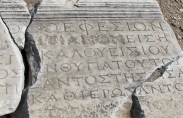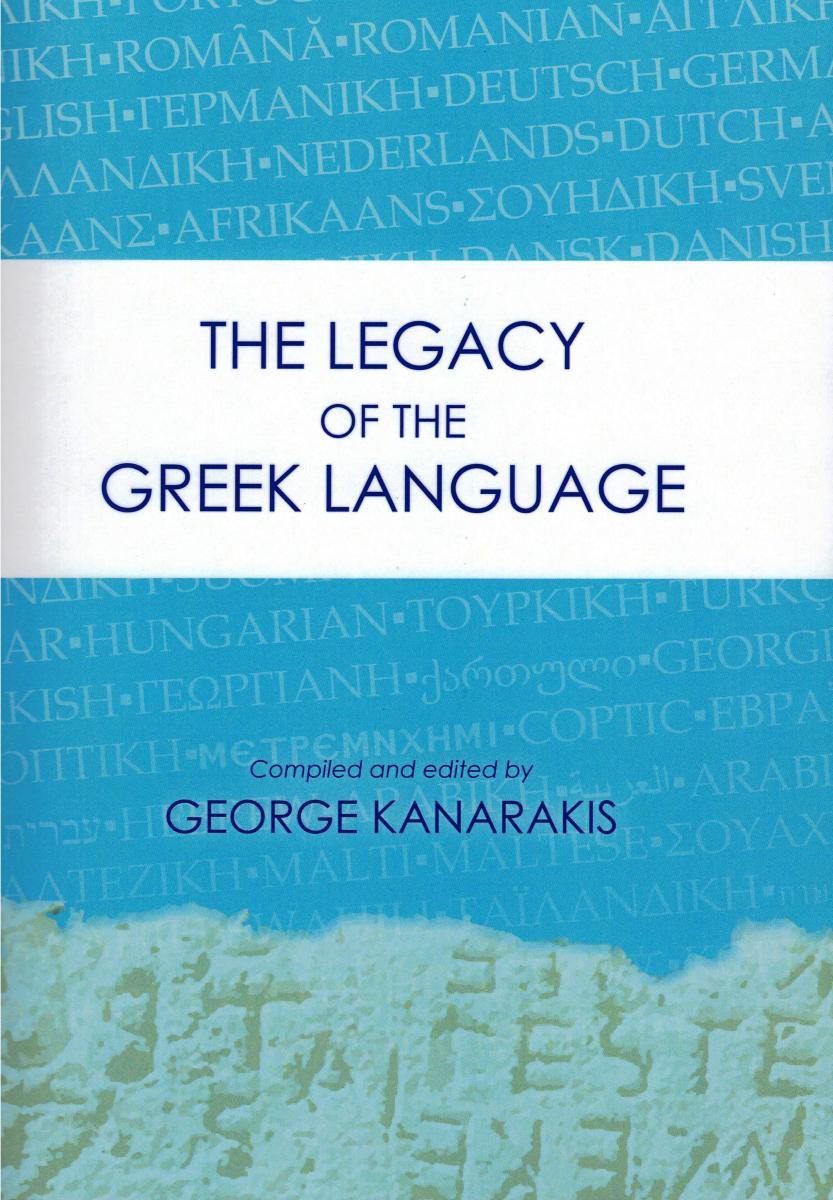- About Us
- Columns
- Letters
- Cartoons
- The Udder Limits
- Archives
- Ezy Reading Archive
- 2024 Cud Archives
- 2023 Cud Archives
- 2022 Cud Archives
- 2021 Cud Archives
- 2020 Cud Archives
- 2015-2019
- 2010-2014
- 2004-2009
 |
Ezy Reading: |
It is with great pleasure (and vehement denial of any hint of personal bias) that this month I have the opportunity to preview a new book by none other than my own father, Dr George Kanarakis. Though having just celebrated his eighty-first birthday and with a busy academic career of over fifty years, innumerable awards, an Order of Australia and twenty books already to his name, George’s enthusiasm for new and innovative scholarly work has nonetheless remained unaffected. This is evident in his latest book, The Legacy of the Greek Language, an extensive study that, at its core, examines the influence of the Greek language on so many others the world over. The book was already published in Greek two years ago (garnering considerable acclaim in his native homeland), but this latest edition from Peridot International Publications has been updated, expanded and further revised in English, where it is hoped it may now find an even broader audience beyond specialised academic fields of linguistics and Greek studies.
This is evident in his latest book, The Legacy of the Greek Language, an extensive study that, at its core, examines the influence of the Greek language on so many others the world over. The book was already published in Greek two years ago (garnering considerable acclaim in his native homeland), but this latest edition from Peridot International Publications has been updated, expanded and further revised in English, where it is hoped it may now find an even broader audience beyond specialised academic fields of linguistics and Greek studies.
At its core, this book is a collective volume of thirty-six specialised studies by thirty-five noted scholars spanning the globe, from Korea to Italy, South Africa to France, Japan to Romania and beyond. As the son of, respectively, a high school teacher mother steeped in history and social sciences and a father whose career was rooted in linguistics, it was inescapable that one might grow up in our household with at least some basic understanding of the impact and intersection of language and culture. At the same time, I must concede I was nonetheless surprised through George’s book to learn just how extensively Greek has impacted so many languages from antiquity into the present that extend so far geographically and culturally beyond Europe. The volume stands as testament to the dedicated and extensive work of the many academics and writers who so generously collaborated on the project, as well, of course, to George himself for his work in conceiving then editing and compiling the entire project. Special thanks must also be extended to my mother Marcia whose diligence and hard work on the project helped bring it to fruition.
But beyond the obvious linguistic appeal to be found in The Legacy of the Greek Language, there is also a timely aspect to the volume that merits attention. The socio-political climate of the world is increasingly casting a keen (and not always positive) eye on the very notion of multiculturalism, blithely ignoring the rich and foundational history of so many countries that is the direct result of different cultures, languages, traditions and technologies merging, then flourishing. Rather than stoop as so many have in recent months to denigrate the very fabric of what makes nations and varying identities whole, how welcome it is to discover a book that celebrates a history of positive influence and focuses more on what it is that we have in common, as opposed to what we may not.
For more information on how to purchase a copy of The Legacy of the Greek Language, visit www.peridotpublications.com
Ezy Reading is out every month.
